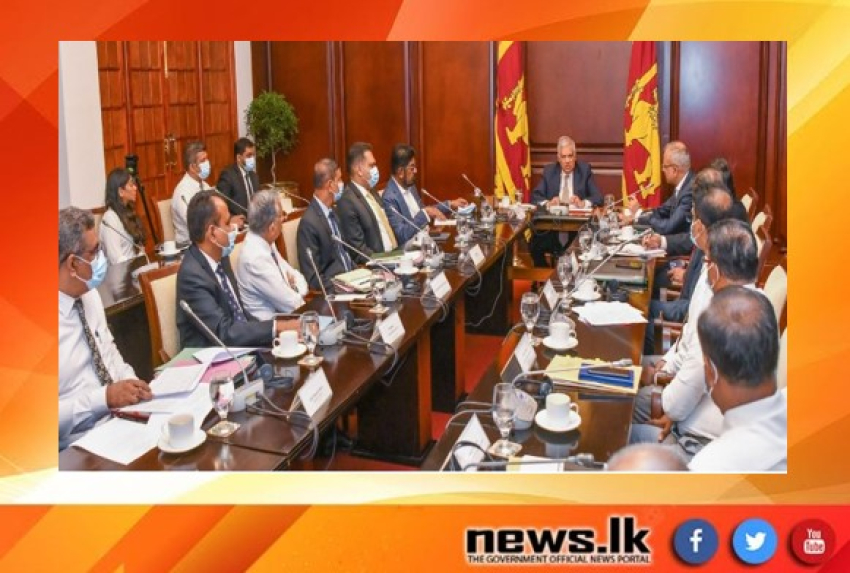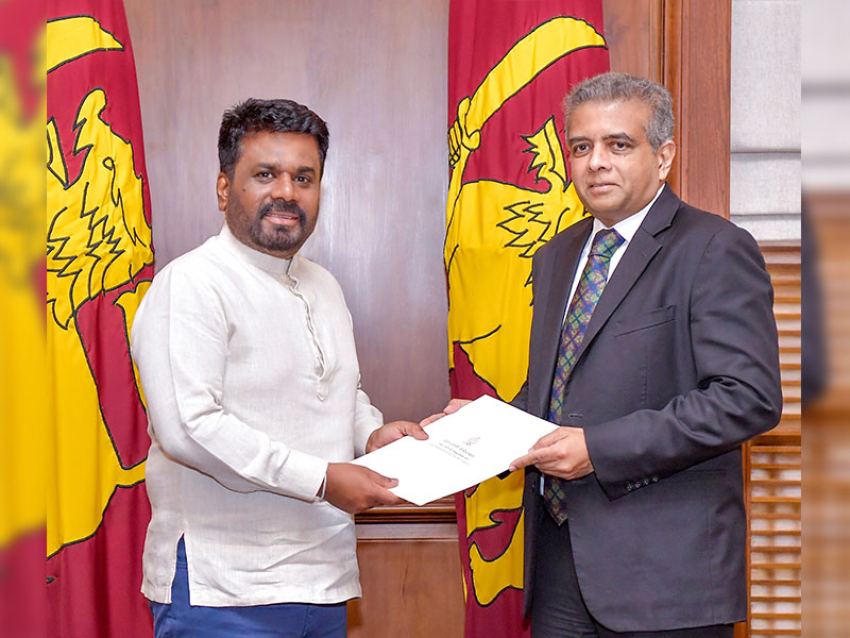President Ranil Wickremesinghe emphasized the importance of ensuring timely access to drugs and promoting transparency in the pharmaceutical sector during a meeting with the Health Minister, health officials, and finance officials yesterday (14).
The President proposed the establishment of websites managed by the Health Ministry to provide up-to-date information on the availability of drugs in Sri Lanka, including specific quantities in each hospital, which will be updated daily. To streamline drug distribution, a networking system will be implemented to facilitate the transfer of drugs between hospitals, bypassing bureaucratic hurdles.
The President said, “Let's be transparent in what every hospital has. It will be very important, as you say, the transparency of it. Then the people can't come and complain if things are available. Not only we do that, every hospital must inventorize and have it on computer what they have. If I go to a hospital tomorrow, I must know what is available, what is not available. Do all that. Then if there is a shortage, we know where the shortage is.”
In response to the challenges caused by current procedures leading to drug shortages, President Wickremesinghe instructed the Health Ministry to expedite the approval process for drugs endorsed by the FDA and other countries. Additionally, he called for amendments to the NMRA Act to enable swift action and overcome obstacles in drug procurement.
“Why can't you ask the FDA and approved drugs, UK approved drugs, has it got to go through the NMRA or can you just order it? So that is a question. In fact, that is a matter in courts at the moment. So I have asked the NMRA to go ahead now and immediately approve FDA drugs and the other countries which have agreed with the Health Ministry, and the Health Ministry will then bring amendments to the NMRA Act which will enable them to act quickly and overcome all the difficulties.”
During the meeting, the President addressed various other issues, including the extension of the retirement age for doctors to 63 years until the end of 2014, and for other special cases as per the requirement of the Health Ministry. In addition, the consideration of those from the Arts Stream in the recruitment of nurses, budget allocations, and the need for fully equipped medical facilities was also discussed. The President emphasized the importance of utilizing existing resources effectively and promoting accountability.
“I don't think we have to change the regulations for nurses that even people with arts subjects can be taken up for training. And doctors' retirement, we've taken the position to allow them to go up to 63 and also for other special cases which the ministry will mention.”
Furthermore, discussions were held on outstanding payments and service agreements for medical equipment, with a plan devised to ensure timely payments and prevent diversion of funds for other purposes. The President stressed the need for proper documentation and the signatures of relevant authorities to maintain financial transparency.
President Ranil Wickremesinghe highlighted the government's commitment to addressing the challenges in the healthcare sector and improving access to quality healthcare services in Sri Lanka.
The President also discussed the proceedings of the National Medicines Regulatory Authority (NMRA) during the meeting with the Health Minister and officials. It was revealed that the NMRA had not submitted reports on its activities since its inception, except for the first year in 2015.
Health Minister Keheliya Rambukwella said, “From the inception, except the first year, 2015 Act No. 5 and the first year, other than that, up to 2021-22, they have not submitted the accounts. So that collective responsibility was there and they all resigned and then we had a new team altogether.”
As a result, he said a new team was appointed, including Prof. Jayaratne as the chairperson and Dr. Vijith Gunasekara as the CEO. The NMRA had faced delays and deliberate obstructions, leading to the reassignment of some staff members to the Health Ministry.
The effectiveness and necessity of the NMRA were questioned, with suggestions made to either justify or repeal it. A team of experts, including a Treasury Member, was appointed to assess the NMRA's activities and provide recommendations within two weeks. The possibility of directly ordering FDA and UK-approved drugs without going through the NMRA's process was raised, and an amendment to expedite the approval of such drugs was proposed.
With regard to the medical personnel who have not yet being registered with the SLMC, the President said that the Health Ministry, SLMC and the Prime Minister’s Secretary will have the necessary amendments to the regulations in the next two weeks.
The discussions also touched on the need to review procurement processes within the health sector to reduce government expenditure. Consultants were considered to provide a report on procurement processes, but the President suggested making decisions promptly during the meeting itself. The Health Minister was encouraged to consult with the Attorney General to initiate necessary actions and proceed with amending relevant regulations.
Meanwhile, the Director General of the Treasury Operations Mr. H.C.D.L. Silva said that according to the outstanding bills over the past two months, sent by the Ministry of Health, Out of that 14 billion, around 10.5 billion are for the medical supplies. “So definitely we will be able to address that. More than two-month bills under the category of medical supplies within this month, it is around 10.5 billion. So we will provide money to the MOH,” he added.
Overall, the meeting highlighted the intention to streamline processes, improve efficiency, and address the challenges faced by the NMRA and the healthcare sector as a whole.
Health Minister Keheliya Rambukwella, Presidential Senior Adviser on National Security and Chief of Presidential Staff Sagala Ratnayake, Presidential Secretary Saman Ekanayake, Prime Minister's Secretary Anura Dissanayake, Health Ministry Secretary S.J.S. Chandragupta, Deputy Treasury Secretary R.M.P. Rathnayake and the heads of line government institutions, the Director General of Health Services Dr. Asela Gunawardena and senior officials in the health sector attended the discussion.



















